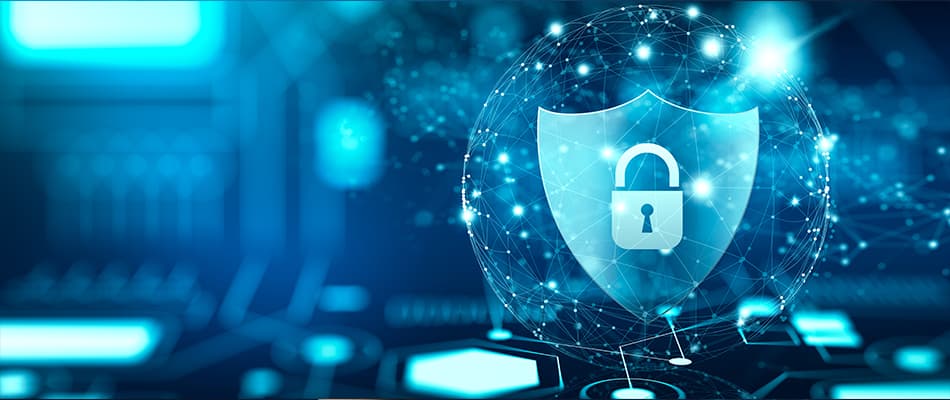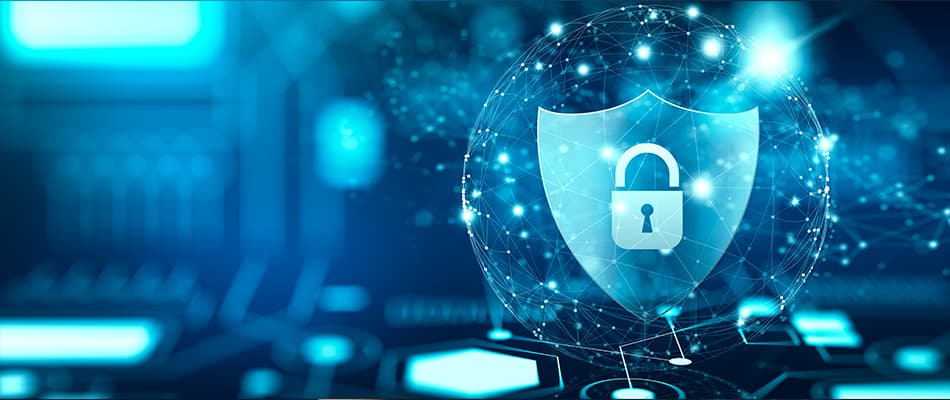What are the 5 Pillars of Cyber Security?
In today’s interconnected world, safeguarding sensitive information is more critical than ever. The 5 pillars of cyber security provide a strong barrier for protecting valuable data from online threats and cyber-attacks. These pillars provide essential elements such as network security, which protects data during transference; application security, ensuring software and systems are free from vulnerabilities; endpoint security, protecting devices connected to the network; and data security, ensuring data integrity and confidentiality. Implementing these pillars not only secures organisational resilience against cyber threats but also encourages trust among stakeholders. As businesses increasingly rely on digital platforms, understanding and implementing these foundational principles are essential for maintaining a secure and resilient information environment.
5 Pillars of Cyber Security
Understanding the 5 pillars of cyber security is important to safeguard sensitive information and systems from online threats. These pillars form the foundation of a strong protective strategy, providing critical aspects such as data protection, access control, and network integrity. By implementing these principles effectively, organisations can ensure confidentiality, maintain data integrity, and sustain operational continuity in an increasingly interconnected world. Check the 5 pillars below and know about their significance and how they collectively fortify cyber defences.
1. Confidentiality
Confidentiality ensures that information is not disclosed to unauthorised parties or systems. It includes encrypting sensitive data during transference and storage, making it unreadable to anyone who doesn’t have the decryption key. For example, in a healthcare system, patient records are encrypted to protect personal information from unauthorised access.
2. Non-Repudiation
Non-repudiation ensures that the sender of a message cannot deny having sent the message and that the recipient cannot deny having received it. This is done through techniques like digital signatures, which provide proof of the origin and delivery of messages. For example, in legal contracts sent via email, digital signatures ensure both parties cannot later claim they did not send or receive the document.
3. Authenticity
Authenticity verifies the identity of users and ensures they have the authority to access specific information or systems. It includes using methods like passwords, biometrics, or two-factor authentication to authenticate users before granting access. For example, banking apps use two-factor authentication to verify the identity of users before allowing access to account information.
4. Availability
Availability ensures that authorised users have uninterrupted access to information and resources when required. It includes implementing measures such as redundancy and failover systems to ensure continuous operation even during system failures or cyber-attacks. For example, cloud service providers use redundant servers to ensure their services remain available despite hardware failures.
5. Integrity
Integrity ensures that data is accurate, complete, and unchanged during transference and storage. It uses methods like checksums or digital signatures to detect any unauthorised changes to data. For example, in financial transactions, integrity checks ensure that the amount transferred remains unchanged from sender to recipient.

Importance of 5 Pillars of Cyber Security
These pillars form the foundation of a secure environment where data is protected from unauthorised access and manipulation. They ensure trust and enable organisations to operate confidently and securely in the digital era. The importance of these cybersecurity pillars lies in their ability to safeguard sensitive data and maintain trust with customers and stakeholders.
- Prevention of Unauthorised Access: Strong cybersecurity measures prevent unauthorised parties from accessing and manipulating data, ensuring the protection of confidentiality and integrity.
- Data Integrity Assurance: These pillars ensure that information sent and received remains accurate and trustworthy by safeguarding against unauthorised changes to data.
- Confidentiality Protection: Secure systems prevent unauthorised disclosure of sensitive information, maintaining privacy for individuals and organisations.
- Trust and Reputation: A strong cybersecurity framework builds trust with customers by assuring them that their data is secure from theft or misuse. This trust is important for maintaining customers’ commitment and a positive reputation.
- Operational Continuity: With robust cybersecurity measures in place, organisations can operate smoothly without disruptions caused by data breaches or unauthorised access incidents.
Implementing the 5 Pillars of Cyber Security
Implementing the 5 pillars of cybersecurity is very important for creating a strong and resilient security framework to protect sensitive data and systems. Here’s how each pillar can be effectively implemented:
- Access Control: Implement strong access control mechanisms like multi-factor authentication (MFA), role-based access control (RBAC), and least privilege principles. This ensures that only authorised personnel have access to sensitive data and systems.
- Data Protection: Use powerful encryption methods to encrypt sensitive data both when it’s being sent and when it’s stored. Data loss prevention (DLP) technologies are used to monitor and prevent unauthorised data access or breakout.
- Security Awareness: Conduct regular cybersecurity training and awareness programs for employees to learn about phishing attacks, social engineering tactics, and best practices for secure handling of data and systems.
- Monitoring and Detection: Monitor network traffic using intrusion detection systems (IDS), intrusion prevention systems (IPS), and security information and event management (SIEM) software.
Start your career in Cyber Security with Digital Regenesys
To start your career in cyber security, we highly recommend that you enrol in the Digital Regenesys’ cyber security course. The course duration is 13 weeks (8 weeks + 5 weeks). Here, you will be given a brief on various aspects of cyber security, including network security, information security, cryptography, and ethical hacking. Additionally, students learn how to identify vulnerabilities in systems, mitigate security risks, and respond to security incidents effectively. Students can enrol in the course for just R19,379. The course guarantees Industry-Expert Faculty, Career Counselling, Live Classes, and more. After completing the course, your gateway opens to pursue careers as cyber security analysts, consultants, or administrators in both the private and public sectors. Here, we have provided the curriculum for Digital Regenesys’ cyber security course.
Read more – How to Build a Career in Cyber Security: Get Details Here
| No of Weeks | Curriculum |
| Weeks 1 |
|
| Weeks 2 |
|
| Weeks 3 |
|
| Weeks 4 |
|
| Weeks 5 |
|
| Weeks 6 |
|
| Weeks 7 |
|
| Weeks 8 |
|
Enrol the Digital Regenesys’ cyber security course Here!
Understanding and implementing the 5 pillars of cyber security is very important in today’s digital landscape to protect sensitive information and maintain operational integrity. For those interested in cyber security, Digital Regenesys offers comprehensive training through their 13-week course. Covering essential topics such as network security, information security, cryptography, and ethical hacking, this program helps the students with the knowledge and skills required to address emerging cyber threats effectively. With industry-expert faculty, live classes, and practical insights, Digital Regenesys prepares individuals for careers as cyber security analysts, consultants, or administrators in both the public and private sectors.

5 Pillars of Cyber Security – FAQs
What is confidentiality in cyber security?
Confidentiality ensures that information is accessible only to authorised individuals or systems. It involves encrypting sensitive data to prevent unauthorised access.
How does non-repudiation contribute to cyber security?
Non-repudiation ensures that the sender and receiver of data cannot deny sending or receiving messages, providing accountability and proof of transference.
What role does authenticity play in cyber security?
Authenticity verifies the identity of users and ensures they have the necessary permissions to access specific information or systems, often through methods like biometrics or two-factor authentication.
Why is availability significant in cyber security?
Availability ensures that authorised users have continuous access to information and resources, even during system failures or cyber-attacks, by implementing redundancy and failover systems.
What does integrity mean in the context of cyber security?
Integrity ensures that data remains accurate, complete, and unchanged during transference and storage, using techniques such as checksums or digital signatures to detect unauthorised interference.
Recommended Posts










